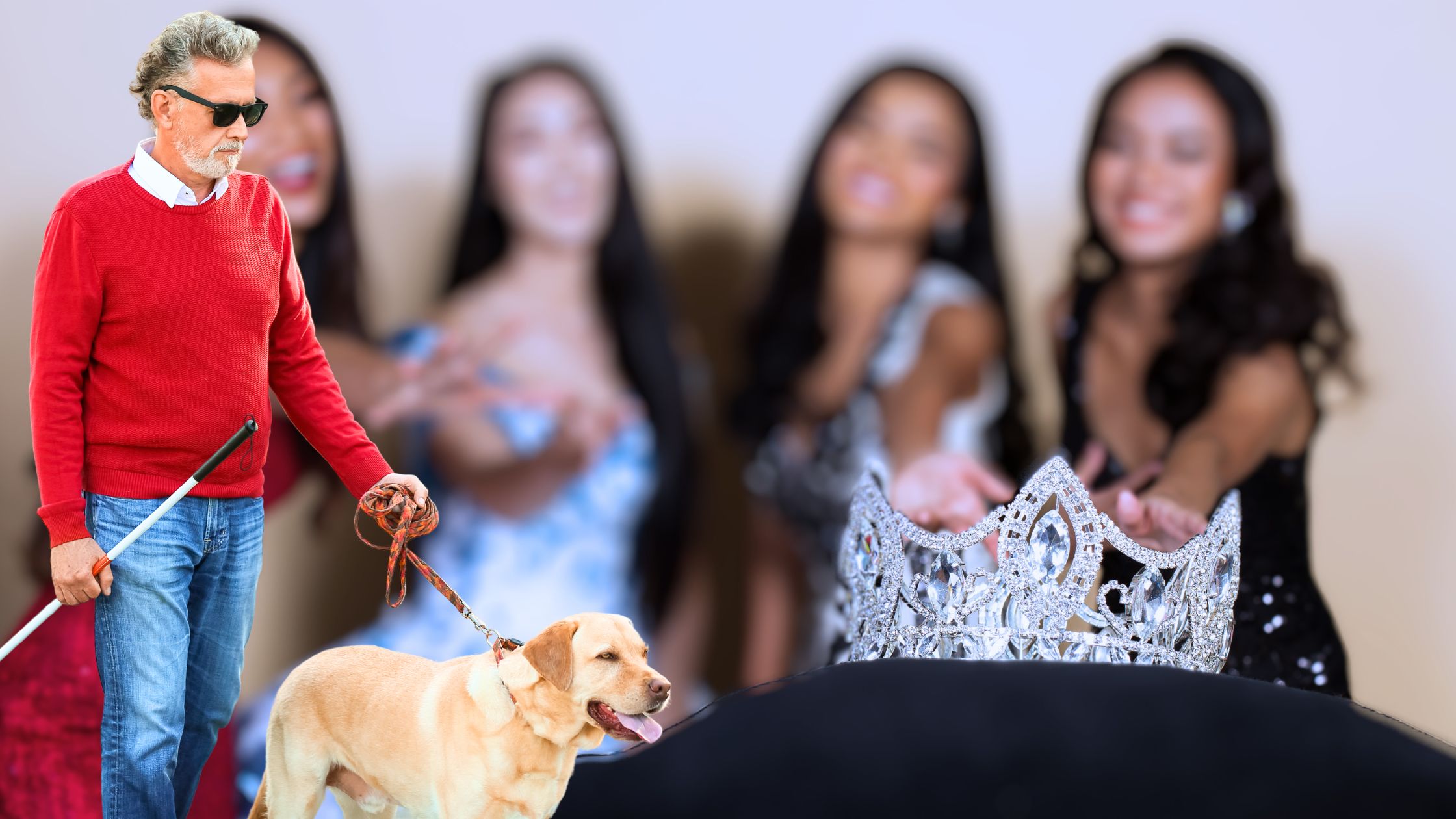Miss Netherlands Judges Literally Blind to Bias, Crown Trans Winner!

In a startling turn of events, the Miss Netherlands pageant has found itself in the midst of a scandalous revelation. It has come to light that the panel of judges responsible for choosing this year’s winner were not just randomly selected experts in the field of beauty or B grade celebrities, but were instead handpicked as part of a diversity initiative aimed at promoting inclusivity. These judges are all physically blind!
Yes, you read that correctly. The Miss Netherlands organisation decided to take a bold leap forward in the name of diversity by selecting a panel of judges who could not see a single contour or curve on the stage. Their vision was replaced with an unquenchable desire for equality, leading them to judge the contestants solely on their responses and “vibe”.
This groundbreaking initiative aimed to challenge the superficiality often associated with beauty pageants, but it seems to have created quite a stir. The winner of this year’s Miss Netherlands crown, Rikkie Kolle, happens to be a trans “woman”, who, according to some skeptics, wouldn’t have stood a chance in a traditional pageant. Nathalie Mogbelzada, who was also a strong contender, has been making waves with her beauty, intelligence, and charisma. However, the decision to crown Rikkie has sparked a frenzy among those questioning the motives of the blind judging panel.
Critics argue that this diversity-driven selection process has swung the pendulum too far, raising concerns about the impartiality of the results. They claim that the judges, deprived of their sight, have inadvertently emphasised attributes other than the traditional standards of beauty, such as poise, confidence, and virtue signalling. Some even argue that there very appointment in the name of diversity may have made them feel compelled to judge contestants using the same standard.
Insiders say there was some concern when the seeing eye dogs were starting to growl and exhibit their displeasure with the choice being made by the judges, but as the judges were seated their dogs were deemed an unnecessary distraction and were taken away and locked in another room.
Pageant organisers claim that this change is necessary to reflect the evolving views on gender identity. They argue that the outdated notion of women being defined solely by their biological sex is archaic and discriminatory. Instead, they propose that beauty should be all-encompassing, embracing people of all genders, backgrounds, and orientations. After all, what could be more relevant to a competition about women’s beauty than having men compete in it?






